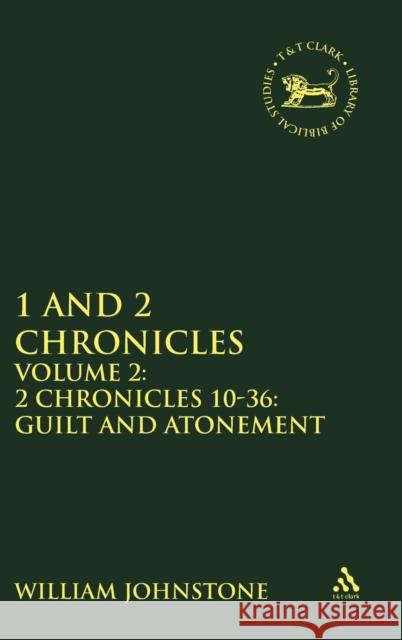1 and 2 Chronicles, Volume 2: Volume 2: 2 Chronicles 10-36: Guilt and Atonement » książka
1 and 2 Chronicles, Volume 2: Volume 2: 2 Chronicles 10-36: Guilt and Atonement
ISBN-13: 9781850756941 / Angielski / Twarda / 1998 / 306 str.
This two-part commentary argues that Chronicles, placed as it is among the 'historical books' in the traditional Old Testament of the Christian church, is much misunderstood. Restored to its proper position as the final book in the canon as arranged in the order of the Hebrew Bible, it is rather to be understood as a work of theology essentially directed towards the future. The Chronicler begins his work with the problem facing the whole human race in Adam-the forfeiture of the ideal of perfect oneness with God's purpose. He explores the possibility of the restoration of that ideal through Israel's place at the centre of the world of the nations. This portrayal reaches its climax in an idealized presentation of the reign of Solomon, in which all the rulers of the earth, including most famously the Queen of Sheba, bring their tribute in acknowledgment of Israel's status (Volume 1). As subsequent history only too clearly shows, however, the Chronicler argues (Volume 2), that Israel itself, through unfaithfulness to Torah, has forfeited its right to possession of its land and is cast adrift among these same nations of the world. But the Chronicler's message is one of hope. By a radical transformation of the chronology of Israel's past into theological terms, the generation whom the Chronicler addresses becomes the fiftieth since Adam. It is the generation to whom the jubilee of return to the land through a perfectly enabled obedience to Torah, and thus the restoration of the primal ideal of the human race, is announced.











